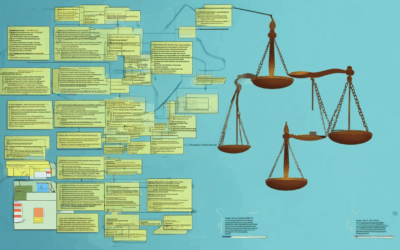Effective governance is the cornerstone of any successful nonprofit organization, with the board of directors playing a pivotal role in shaping the organization’s direction and ensuring compliance with legal and ethical standards. Understanding the diverse roles and responsibilities of board members, coupled with the legal duties they must uphold, is essential for fostering a productive and accountable nonprofit environment. Whether you’re new to the concept or looking to refine your knowledge, this comprehensive guide will explore the various positions on a 501(c)(3) board, the key responsibilities of board members, and the critical legal obligations that come with serving on a nonprofit board. By examining these elements, readers will gain valuable insights into how to contribute effectively to the governance and success of a nonprofit organization.

The Three Main Roles of the Board
The board of directors plays a pivotal role in the governance and strategic oversight of an organization. Below are the three primary functions that define the board’s responsibilities:
1.
Governance
- The board ensures the organization adheres to legal and regulatory requirements.
- It oversees the implementation of organizational policies and ethical standards.
- The board is responsible for maintaining transparency and accountability within the organization. – BoardEffecthighlights the importance of governance in ensuring smooth operations.
2.
Strategic Direction
- The board sets the long-term vision and goals for the organization.
- It evaluates opportunities and risks to guide decision-making processes.
- Strategic planning involves aligning resources with organizational objectives. – Dualityemphasizes the role of the board in driving innovation and growth.
3.
Accountability
- The board is accountable to stakeholders, including donors, volunteers, and beneficiaries.
- It ensures that the organization meets its mission and delivers on its promises.
- Accountability fosters trust and credibility with the public and other key partners. – GuideStarprovides tools for measuring and improving accountability.
By fulfilling these roles effectively, the board contributes to the overall success and sustainability of the organization.
What Positions Do You Have on the Board?
We currently have the following positions available on our board:
1.
Board Chair
- The Board Chair oversees the overall strategy and direction of the organization, guiding the board in achieving its mission and goals. This role requires strong leadership skills, strategic vision, and a commitment to the organization’s success.
2.
Board Vice Chair
- Serving as the Vice Chair, you will support the Board Chair in managing meetings, overseeing committees, and providing leadership during the absence of the Chair. This role involves active participation in decision-making processes and fostering collaboration among board members.
3.
Treasure
- As Treasurer, you will oversee the organization’s financial operations, including budget preparation, fiscal management, and ensuring compliance with financial regulations. This role requires expertise in financial management and attention to detail.
4.
Secretary
- The Secretary manages the administrative functions of the board, including recording minutes of meetings, maintaining records, and ensuring compliance with legal and organizational requirements. This role involves strong organizational skills and attention to detail.
5.
DIRECTOR OF DEVELOPMENT
- The Director of Development leads the organization’s fundraising efforts, including grant writing, donor relations, and building relationships with stakeholders. This role requires excellent communication skills and a deep understanding of fundraising strategies.
For more information about these roles or to apply, visit our Board Openingspage.

What Are Board Members Responsible For?
Board members in various organizations hold significant responsibilities that contribute to the overall success and mission of the entity. Here’s a breakdown of their primary duties:
- Strategic Oversight:
- Board members are accountable for overseeing the strategic direction of the organization, ensuring alignment with the stated mission and goals.
-
They define the long-term vision and objectives, guiding the organization toward achieving its objectives.
-
Financial Oversight:
- Board members are responsible for monitoring the organization’s financial health.
-
This includes approving budgets, reviewing financial statements, and ensuring the prudent use of funds.
-
Legal Compliance:
- They must ensure that the organization adheres to all relevant laws and regulations.
-
This involves staying informed about legal requirements and advocating for compliance measures.
-
Fundraising and Resource Development:
- Board members may assist in fundraising efforts, leveraging their personal and professional networks to secure donations, grants, and sponsorships.
-
They also help identify potential funding sources and strategies to sustain the organization.
-
Governance and Policy Development:
- Board members are tasked with developing and reviewing organizational policies.
-
They ensure that the organization’s governance structures are effective and aligned with best practices.
-
Accountability and Performance Review:
- Board members are accountable for their decisions and must ensure that the organization meets its goals.
-
Regular performance reviews and strategic assessments are conducted to evaluate the organization’s progress.
-
Contribution of Expertise:
- Each board member brings unique skills and knowledge to the table, contributing to the overall effectiveness of the board.
-
Their expertise helps in making informed decisions and driving organizational success.
-
Meeting Attendance and Participation:
- Board members are expected to attend all scheduled meetings, including regular board sessions and committee meetings.
- Active participation in discussions and decision-making processes is crucial for effective governance.
By collectively fulfilling these responsibilities, board members play a pivotal role in ensuring the organization operates efficiently, remains legally compliant, and achieves its intended impact.

Role of Board Members in a Nonprofit Organization
The board of directors in a nonprofit organization plays a pivotal role in shaping its strategic direction, ensuring compliance, and driving toward its mission. Here’s a breakdown of their responsibilities:
1. Strategic Direction
The board sets the nonprofit’s long-term vision and goals, ensuring alignment with the organization’s mission and values. They oversee the development of strategic plans that guide the nonprofit’s operations and initiatives.
2. Governance
As the governing body, the board is responsible for organizational oversight. This includes establishing policies, ensuring legal and regulatory compliance, and monitoring the nonprofit’s performance. They also evaluate the executive director’s performance and the overall effectiveness of the organization.
3. Fiscal Oversight
Board members play a crucial role in reviewing and approving the nonprofit’s budget, financial statements, and expenditure reports. They ensure that funds are utilized efficiently and effectively, maintaining transparency and accountability.
4. Fundraising and Resource Development
They collaborate with the development team to create and implement fundraising strategies, leveraging their networks and relationships to secure donations, grants, and sponsorships. Their involvement in resource development strengthens the nonprofit’s financial stability.
5. Advocacy and Public Representation
Board members advocate for the nonprofit’s mission at various levels, influencing public policy and increasing awareness of the cause. They represent the organization in media appearances, partnerships, and external communications, enhancing the nonprofit’s visibility and credibility.
6. Hiring and Staff Evaluation
The board is involved in hiring key personnel, including the executive director, and evaluates their performance. This ensures that the nonprofit has capable leadership driving its programs and initiatives forward.
7. Compliance and Risk Management
They oversee compliance with federal, state, and local laws and regulations. By identifying and mitigating risks, the board protects the nonprofit from legal issues and ensures operational integrity.
8. Stakeholder Engagement
Board members engage with key stakeholders, including volunteers, donors, and beneficiaries, fostering a supportive and collaborative environment. This relationship-building contributes to a stronger community around the nonprofit.
9. Innovation and Adaptation
The board encourages innovation, exploring new strategies and programs to enhance the nonprofit’s impact. Their proactive approach ensures the organization remains responsive and effective in a changing environment.
Diversity and Inclusion
A diverse board fosters varied perspectives, enriching decision-making processes. This inclusivity aligns with modern expectations and enhances the nonprofit’s ability to reflect the communities it serves.
By fulfilling these roles, the board ensures the nonprofit operates ethically, strategically, and effectively, contributing significantly to its success and community impact.
Positions on a 501(c)(3) Board
The board of directors for a 501(c)(3) organization typically includes the following positions:
- President/Chief Executive Officer (CEO): Oversees the organization’s overall operations and strategic direction.
- Vice Presidents: May hold titles like Vice President of Programs, Finance, or Development, overseeing specific areas.
- Treasurer: Manages the organization’s financial health and ensures compliance with fiscal policies.
- Secretary: Handles administrative duties, including recordkeeping and meeting documentation.
- Development Director: Leads fundraising efforts and strategic growth initiatives.
- Board Chair: Acts as the top-ranking member, guiding the board’s decisions and representing the organization externally.
Additional positions may include:
- Emeritus Members: Honorary members who have made significant contributions but may not hold voting privileges.
Board size typically ranges between 15 to 25 members, with each serving a term of three to five years. Officers often serve shorter terms, typically one to two years, depending on organizational needs.

What Are the Three Legal Duties of Board Members?
Nonprofit board members have three primary legal duties that ensure effective governance and compliance with legal standards. These duties are rooted in the principles of care, loyalty, and obedience, ensuring that the organization operates responsibly and in accordance with its mission and legal framework.
-
Duty of Care:
Board members must act in good faith and exercise reasonable care in their decisions. This includes attending meetings prepared, staying informed about the organization’s activities, and understanding their financial and operational responsibilities. They must also be aware of potential conflicts of interest and disclose them appropriately to prevent misuse of resources. -
Duty of Loyalty:
Members must prioritize the organization’s best interests above their own. This means avoiding any actions that could harm the nonprofit’s reputation or financial stability. Board members should refrain from self-dealing transactions and support the mission-driven goals of the organization, ensuring trustworthiness and commitment to the cause. -
Duty of Obedience:
Directors must comply with the organization’s governing documents, including bylaws, policies, and any applicable laws or regulations. This ensures consistency and adherence to legal requirements, fostering a culture of accountability and compliance.
By fulfilling these duties, board members contribute to the effective leadership and sustainable operation of the nonprofit, ensuring it remains focused on its mission and serves its stakeholders effectively.
Learn more about nonprofit governance and board member responsibilities.




0 Comments